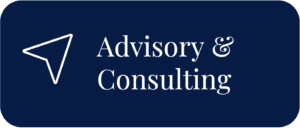“Give me six hours to chop down a tree, and I will spend the first four sharpening the axe.” Abraham Lincoln’s words echo profoundly in the world of strategic sourcing, where preparation, precision, and the right tools define the success of procurement strategies. A well-crafted strategic sourcing strategy that is equally well executed enables organisations to slice through market complexities with greater ease and efficacy.
In this guide, we explore strategic sourcing not just as a procurement function but as a critical economic lever that balances cost efficiency with risk mitigation and value enhancement. By dissecting the components of strategic sourcing—market analysis, competitive bidding, and supplier selection—we unveil how these elements converge to form a robust procurement backbone that supports and drives al objectives.
Moreover, while the blueprint of strategic sourcing is well-defined, the dynamics of its application vary significantly across different market landscapes. This is where the expertise of procurement consultants becomes invaluable. These specialists wield their deep market insights and analytical prowess to tailor strategic sourcing frameworks that align with unique business needs and market conditions.
We will also delve into the common challenges businesses face in strategic sourcing and discuss how leveraging expert consultancy can transform these challenges into opportunities for growth and competitive advantage. Looking forward, we will forecast the emerging trends that are shaping the future of procurement in the changing economic terrain.
But first, lets start at the beginning.
What is Strategic Sourcing?
Strategic sourcing is a focused approach within procurement that emphasises the selection of suppliers to reduce (or contain) cost, increase value and reduce risk. It involves identifying needs and opportunities, analysing spend, evaluating suppliers, and negotiating contracts.
As we define and explore the steps involved in strategic sourcing, it’s important to acknowledge the origins of these methodologies. The 7-step strategic sourcing process, developed by A.T. Kearney, has become a foundational framework within the industry. This model was a result of pioneering thought leadership aimed at optimising procurement efficiencies and has since been adopted widely, becoming the norm in strategic sourcing practices today.
In this context, the role of procurement consultants becomes even more pivotal. These experts do not merely apply these well-established steps; they refine and adapt them to meet the evolving needs of businesses. Their ability to interpret and implement this framework, ensuring that businesses can leverage the best practices tailored to their unique market conditions and needs, is what continually advances the field of strategic sourcing.
Strategic sourcing is critical for businesses for several compelling reasons:
- Cost Efficiency: By methodically evaluating suppliers and developing long-term relationships with them, companies can negotiate better terms and lower costs, driving significant savings. Strategic sourcing moves beyond mere price reduction to encompass total cost of ownership, which includes factors such as delivery costs, quality, and service after purchase (Gottfredson, Puryear, & Phillips, 2005).
- Competitive Advantage: Strategic sourcing provides firms with a competitive edge by ensuring that they have the best possible supply base that aligns with their business strategies. This alignment enhances the company’s market responsiveness and innovation capabilities by integrating suppliers’ technological advancements and capabilities directly into the business’s product offerings (Formentinia, Ellramb, Boemc, & Da Red).
- Risk Management: An integral component of strategic sourcing is risk assessment, which helps in identifying potential supply chain disruptions and developing strategies to mitigate these risks. It involves understanding and managing supplier risks, such as financial stability, geopolitical factors, and compliance with standards, thus ensuring the continuity and security of supply (Talluri & Narasimhan, 2004).
Through strategic sourcing, companies can achieve more than just short-term savings; they can enhance their market position by becoming more adaptable and forward-thinking in their procurement strategies. By aligning purchasing strategies with overall business objectives, firms not only reduce costs but also improve product quality and supplier performance, which ultimately enhances customer satisfaction and business performance (Gottfredson, Puryear, & Phillips, 2005).
Developing a Strategic Sourcing Framework
An effective strategic sourcing framework consists of several critical components, each serving a specific purpose in optimising procurement strategies. Here’s an overview of these components:
- Opportunity Analysis: This initial stage involves identifying areas within the procurement process that offer potential for cost savings or efficiency improvements. By analysing current spending and supply chain operations, companies can pinpoint opportunities to leverage economies of scale, consolidate supplier bases, or implement more cost-effective procurement practices.
Procurement consultants can provide an external, expert perspective that enhances the identification of cost-saving or efficiency-improving opportunities within the procurement process.
- Market Analysis: Understanding the supply market is crucial for effective strategic sourcing. This component requires researching current and potential suppliers, market trends, risks, and innovations. This analysis helps in assessing the capabilities of suppliers against the company’s needs and determining the supply market’s dynamics and constraints.
Procurement consultants are particularly valuable in this component, bringing in-depth market knowledge and analytical skills that deepen the understanding of supply market dynamics and supplier capabilities.
- Strategy Development: Based on insights gathered from opportunity and market analyses, strategy development involves formulating tailored sourcing strategies. These strategies should align with the company’s broader business goals and address specific procurement needs, considering factors like risk management, cost reduction, and quality improvement.
Leveraging the expertise of procurement consultants during strategy development can help ensure that the strategies are not only aligned with business goals but are also robust against market volatilities and future risks.
- Market Engagement: Engaging the market involves interacting with existing and potential suppliers to gather further insights and build relationships. This step can include issuing requests for information (RFIs), requests for proposals (RFPs), and conducting supplier visits. Effective market engagement helps refine the sourcing strategy by clarifying the capabilities and interest levels of suppliers.
Procurement consultants often lead this effort, utilising their extensive networks and relationship management skills to engage with potential suppliers effectively and gather critical market intelligence. This phase benefits greatly from the expertise of procurement consultants, particularly those with specialised knowledge in specific categories.
Hiring a category expert can transform the Market Engagement process. These consultants bring a wealth of knowledge about market dynamics, supplier landscapes, and category-specific pricing strategies. Their experience in running effective procurement processes becomes invaluable in navigating negotiations and ensuring that the organisation can secure the best possible terms.
For instance, a category expert in IT procurement would be adept at understanding the rapidly changing technology market, identifying emerging suppliers who offer innovative solutions, and knowing the typical contract terms that can be negotiated in this sector. This level of expertise ensures that the Market Engagement process is not only about gathering information but also about leveraging it to strategically position the company ahead of its competitors.
Moreover, these consultants use their established relationships within the industry to facilitate introductions and build bridges, enabling companies to access better deals and partnership opportunities that might not be available through traditional channels. Their deep understanding of the category ensures that all engagements are conducted with a strategic focus, aligning procurement actions closely with the overall business objectives.
- Negotiation: Critical to strategic sourcing, negotiation aims to secure the best possible terms with suppliers. This involves not just negotiating prices but also terms related to delivery, quality, payment, and after-sales service. Successful negotiations contribute to sustainable supplier relationships and optimized procurement costs.
Consultants’ negotiation expertise is crucial in securing the best terms with suppliers, drawing on their experience and knowledge of market standards to advocate for favorable contract terms.
- Contract Implementation: After negotiations, the next step is implementing the contracts. This includes ensuring that all agreed-upon terms are clearly outlined and understood by both parties. Effective contract implementation is crucial for managing compliance and expectations and serves as a reference point for managing future supplier performance.
Procurement consultants ensure that the contracts are implemented in a way that aligns with the strategic goals discussed, aiding in compliance and performance management.
- Supplier Relationship Management (SRM): SRM involves ongoing oversight and management of supplier relationships to ensure that the suppliers meet or exceed their contractual obligations. This component is vital for maintaining high standards of quality and service and for fostering continuous improvement and innovation from suppliers.
Procurement consultants often facilitate the development of strong, strategic relationships with suppliers, ensuring these relationships are managed to foster continuous improvement and innovation.
- Strategy Refresh: Strategic sourcing is not a set-and-forget strategy. Regularly refreshing the sourcing strategy ensures that it remains aligned with changing business needs, market conditions, and technological advancements. This component involves reviewing and updating the sourcing strategy to address new challenges and opportunities.
Procurement consultants play a key role in regularly refreshing the sourcing strategy, bringing fresh perspectives that help the business adapt to new challenges and opportunities.
Each of these components is interconnected and crucial for the success of strategic sourcing initiatives. By systematically implementing these steps, companies can enhance their procurement efficiency, reduce costs, mitigate risks, and build stronger, more collaborative relationships with suppliers.
As we wrap up this part of our guide, we have established a solid understanding of what strategic sourcing entails and the critical components necessary for developing an effective strategic sourcing framework. We have explored how strategic sourcing is not just a cost-cutting exercise but a sophisticated strategy that aligns procurement with overarching business objectives.
In the next part, we will dive into the pivotal role of procurement consultants, whose expertise can transform strategic sourcing strategies into tangible business successes. Stay tuned as we uncover how these professionals make a significant impact in refining and executing these strategies.








